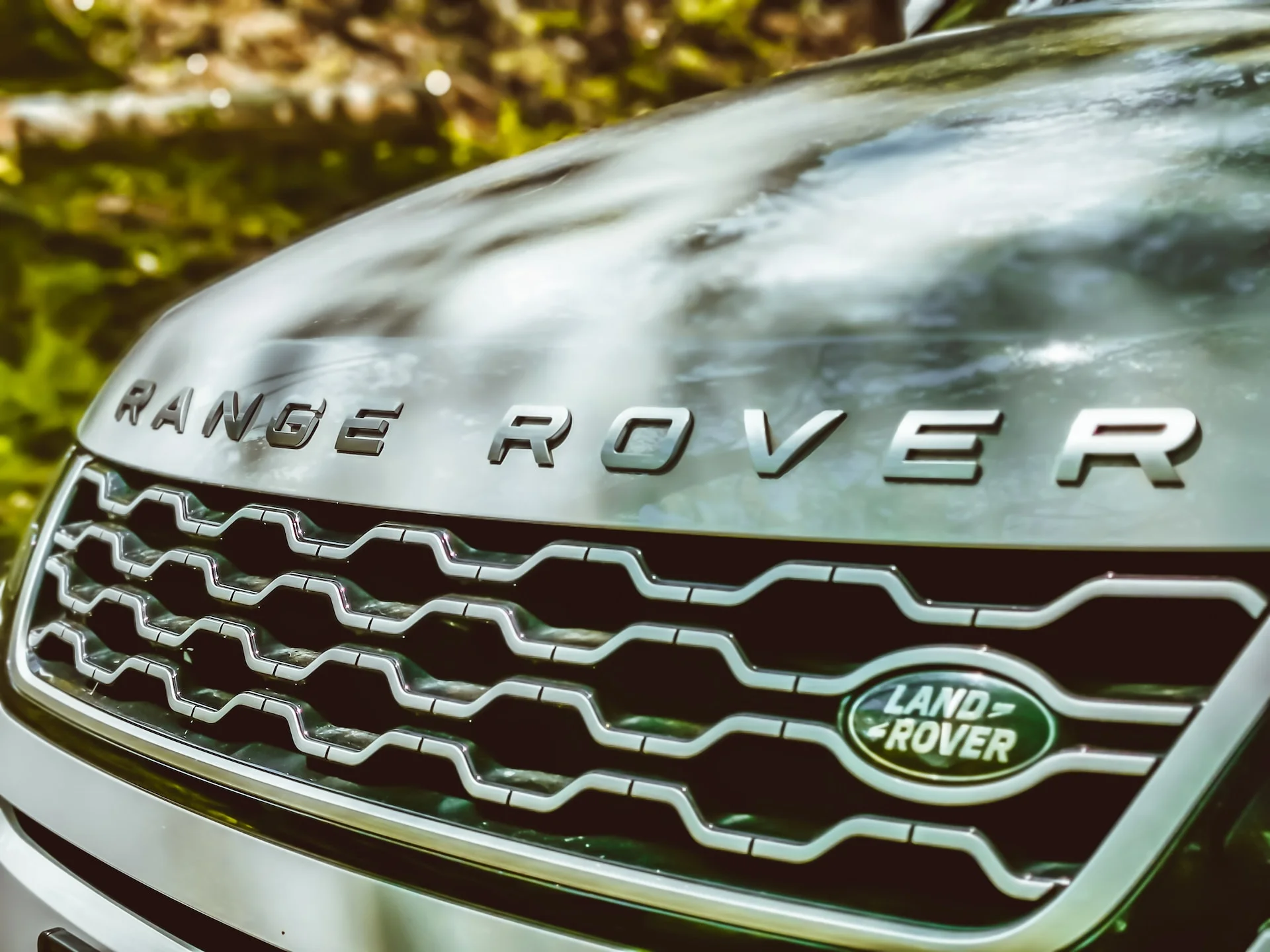At Meta Mechanics, we understand the intricacies of luxury vehicle repairs, and we pride ourselves on offering solutions tailored to high-performance cars like the Range Rover SV. One of the most crucial components in modern vehicles like the Range Rover SV is the steering angle sensor. Recently, we had the privilege of assisting a Range Rover SV owner in Dubai who experienced issues related to their steering angle sensor programming. The vehicle’s advanced driver-assistance systems (ADAS) and safety features were malfunctioning, and after an in-depth diagnosis, we determined that the steering angle sensor needed to be reprogrammed. In this article, we’ll walk you through the issues we encountered, the repair process, and the solutions we provided to restore the vehicle’s performance and safety.
Understanding the Steering Angle Sensor
The steering angle sensor is an essential part of the vehicle’s Electronic Stability Program (ESP), traction control, anti-lock braking system (ABS), and other critical systems. This sensor monitors the angle at which the steering wheel is turned and sends that information to the vehicle’s control unit. When functioning properly, the steering angle sensor helps ensure that your Range Rover SV operates smoothly by controlling various electronic safety features, such as:
Electronic Stability Control (ESC): Ensures the vehicle maintains its stability, especially on slippery surfaces or during sharp turns.
Traction Control: Prevents wheel spin, particularly in conditions like rain or snow.
Adaptive Cruise Control: Adjusts the vehicle’s speed to match traffic conditions, improving driver convenience and safety.
Lane Departure Warning and Lane-Keeping Assist: Warns the driver if the vehicle is unintentionally drifting out of its lane and provides steering corrections when necessary.
A malfunctioning steering angle sensor can disrupt these systems, leading to a reduction in vehicle safety, poor driving dynamics, and compromised performance. In some cases, a malfunctioning sensor will trigger warning lights on the dashboard, alerting the driver to a potential issue.
Symptoms of a Faulty Steering Angle Sensor
Before the owner brought their Range Rover SV to Meta Mechanics, they had been experiencing a few symptoms that led them to believe there was a problem with the steering angle sensor. These signs included:
Warning Lights on the Dashboard: The ABS and ESC lights were illuminated, signaling that the vehicle’s electronic stability systems were not functioning correctly.
Unresponsive Safety Features: The lane-keeping assist and adaptive cruise control systems were either malfunctioning or completely non-responsive, making it unsafe to drive the vehicle on highways or busy roads.
Erratic Steering Behavior: At times, the steering wheel felt unusually stiff or unbalanced, especially when turning, which is often a result of inaccurate data being sent by the sensor.
Inconsistent Braking Performance: The vehicle’s braking system was not responding optimally, and there were instances where it seemed the ABS wasn’t engaging correctly during emergency braking situations.
Misalignment and Tire Wear: The owner noticed uneven tire wear, which can be an indirect consequence of steering issues caused by a faulty sensor.
These symptoms led the Range Rover SV owner to seek help from Meta Mechanics. As a leading car garage near me in Dubai, we specialize in diagnosing and repairing complex issues in high-performance vehicles, and we knew immediately that the steering angle sensor programming was the root cause of the problem.
Diagnosis and Solution
When the Range Rover SV arrived at Meta Mechanics, our team began by performing a detailed inspection and diagnostic scan of the vehicle’s onboard systems. Our state-of-the-art diagnostic tools revealed that the steering angle sensor was not providing accurate data to the vehicle’s control unit, leading to the activation of warning lights and the malfunction of various safety systems.
We also identified that the sensor itself was functioning but had become miscalibrated, likely due to a previous repair, an electrical fault, or a software issue. The miscalibration of the steering angle sensor prevented the vehicle’s systems from receiving accurate data, thereby impacting the vehicle’s overall performance.
Steering Angle Sensor Calibration and Reprogramming
The primary issue was that the steering angle sensor was not correctly calibrated. To address this, we had to reprogram and calibrate the sensor so that it could provide accurate data to the vehicle’s control systems. This process involves:
Connecting to the ECU: We connected our diagnostic equipment to the Range Rover SV’s ECU (electronic control unit) and accessed the steering angle sensor parameters.
Clearing Fault Codes: After identifying and clearing the fault codes that had been triggered by the sensor, we ensured that no errors remained in the system.
Reprogramming the Sensor: Using specialized software, we reset the steering angle sensor to ensure that it was accurately aligned with the vehicle’s steering mechanisms.
Performing Recalibration: The sensor required recalibration to ensure that it provided precise angle measurements, allowing the vehicle’s ESC, ABS, traction control, and lane-keeping assist systems to function as intended.
Testing and Verifying the Systems
Once the steering angle sensor was calibrated and reprogrammed, we performed a series of tests to verify that all associated systems were working correctly:
Electronic Stability Control (ESC): We tested the ESC system by simulating conditions that would require its intervention (such as sudden sharp turns and slippery surfaces). The system responded appropriately, maintaining stability and preventing skidding.
Traction Control: We verified that the traction control system was engaging as needed, particularly during conditions where wheel slip could occur.
Adaptive Cruise Control and Lane-Keeping Assist: We tested both of these systems on a highway and verified that they were functioning as intended, keeping the vehicle centered in its lane and adjusting speed based on traffic conditions.
ABS System: We tested the ABS system to ensure that it was engaging correctly during emergency braking situations, with no loss of braking effectiveness.
Final Inspection
Before returning the vehicle to the owner, our team performed a comprehensive final inspection to ensure that everything was in order. We checked the alignment, tire condition, and other related systems to ensure that the Range Rover SV was in top condition. Once we were satisfied that the sensor and its related systems were functioning optimally, we cleared all diagnostic codes, reset the system, and completed the repair.
Benefits of Steering Angle Sensor Programming
Reprogramming the steering angle sensor in the Range Rover SV brought several benefits, including:
Restored Safety Systems: The recalibration of the sensor ensured that essential safety features like ESC, ABS, and lane-keeping assist were working again, offering the driver enhanced control and stability, particularly in adverse driving conditions.
Improved Driving Experience: With the sensor providing accurate data, the vehicle’s steering and handling improved, offering smoother, more precise steering responses.
Enhanced Performance: With the sensor properly aligned and calibrated, the vehicle’s traction control and adaptive cruise control systems functioned as intended, improving the overall driving experience.
Why Choose Meta Mechanics for Steering Angle Sensor Programming?
If you’re looking for a car garage near me in Dubai that can handle complex repairs and provide expert service for your Range Rover SV, Meta Mechanics is your go-to solution. Here’s why we stand out:
Expert Technicians: Our team is skilled in working with high-end luxury vehicles like the Range Rover SV, with years of experience in diagnosing and repairing intricate issues.
Advanced Diagnostic Tools: We use the latest diagnostic equipment and software to quickly and accurately identify problems, ensuring that your vehicle receives precise and efficient repairs.
OEM Parts and Solutions: At Meta Mechanics, we only use OEM parts to ensure that your vehicle is restored to its original specifications and performance.
Comprehensive Services: From steering angle sensor programming to brake repairs, suspension services, and more, we offer a full range of automotive services to keep your Range Rover SV in peak condition.
Convenient Location: Searching for a car garage near me in Dubai? Meta Mechanics is conveniently located, making it easy for you to access expert services for your luxury vehicle.
Conclusion
At Meta Mechanics, we are committed to providing top-tier service for your Range Rover SV. Whether you’re dealing with issues related to the steering angle sensor, adaptive cruise control, or any other vehicle system, our skilled technicians are here to help. If you’re searching for a car garage near me in Dubai that offers professional, reliable, and efficient repairs, look no further than Meta Mechanics.
Contact us today to schedule an appointment or consultation, and experience the exceptional service that makes us Dubai’s trusted choice for high-performance vehicle repairs.



